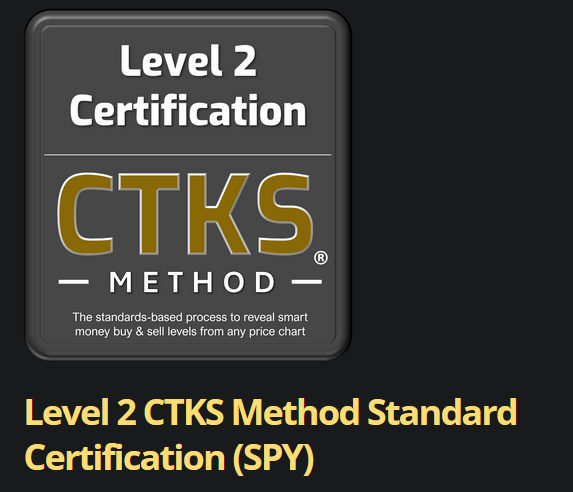Key information:
-
The SEC believes the proposals don’t meet requirements to forestall manipulation and fraud.
-
Applicants say bitcoin is immune to manipulation, however nothing convinces the company.
The United States Securities and Exchange Commission (SEC) has denied approval to almost a dozen proposals submitted by a number of corporations that need to launch spot Bitcoin exchange-traded funds (ETFs). But, behind its lack of consent is the undeniable fact that the regulatory company has at all times considered bitcoin (BTC) with suspicion.
Until now, the Commission has solely accredited a few ETFs for Bitcoin futures, however not these linked to the spot market. And thus, a lengthy story has been written about a number of makes an attempt to launch a product that might open a new door for extra buyers to enter the peer to see e-cash market.
Recently, in a new episode about spot exchange-traded funds, SEC Chairman Gary Gensler postponed the assessment course of for a group of proposals. He did so simply when there have been simply a few days left earlier than the final scheduled date on which he was to problem a decision.
Shortly earlier than that, Gensler instructed the Senate Banking Committee that considers that the bitcoin business is nothing greater than a “wild west” of non-compliance with the guidelines. “It’s a field rife with fraud, abuse and misconduct,” he added.
With his phrases, Gensler reveals that he views the business that was born with the invention of Satoshi Nakamoto with skepticism. And so long as the company stays biased about the ecosystem, it can doubtless proceed to disclaim many Bitcoin ETF functions.
Bitcoin Industry Caught Under SEC Scrutiny
As talked about earlier on this article, the SEC has already accredited ETFs that observe Bitcoin futures on the Chicago Mercantile Exchange (CME), however one other story is being written with functions for spot BTC exchange-traded funds.
The distinction is that the fee regulates Bitcoin futures ETFs below the Investment Company Act of 1940, usually below the similar regulatory necessities as mutual funds and unit funding trusts. That is, below the similar guidelines that govern the conventional monetary system.
Through this future monetary product, Investors can make cash with bitcoin while not having to buy the asset.
As Cryptopedia factors out, it implies that those that purchase the bitcoin futures ETF will not be shopping for and managing currencies as they might usually do in an alternate or pockets, however what they’ve below their energy are shares that symbolize possession or possession over a portion of the backside.
In quick, they don’t personal the asset, though they will generate earnings from modifications in its value.
However, there is one other story behind spot bitcoin ETFs, as whereas futures ETFs create their very own value based mostly on bets, based mostly on a given later date; Cash ones base their value on some index that maintains a direct correlation with the value of the asset.
On the different hand, whereas futures don’t supply direct publicity to the crypto asset, the similar doesn’t occur with money. Each time an investor purchases property in the fund, the issuer will use that cash to buy bitcoin in money.
The above are operational particulars of the monetary product, however the truth on which the SEC can be putting its gaze, and being reluctant to approve spot bitcoin ETFs, is as a result of these they might straight observe the bitcoin value of the exchanges. The XBT on the Bitmex alternate is amongst the devices typically used to trace the spot value of bitcoin.
However, Bitmex is a firm much like Coinbase, Binance or Kraken, about which the SEC opened investigations and lawsuits for violating United States securities legislation.
Therefore, it is doubtless that Gensler is reluctant to approve spot Bitcoin ETFs as a result of that manner it could legitimize an business that is at the moment below the company’s regulatory scrutiny.
The SEC is torn between the guidelines and the authorized vacuum
For years, the SEC’s refusal to approve Bitcoin spot ETF proposals appeared preordained, however now the group has been ready for a change.
As CriptoNoticias reported final August, a courtroom dominated that the regulatory physique acted arbitrarily when rejected Grayscale’s proposal to launch a spot bitcoin ETF.
After a US courtroom ruling, analysts estimated a 75% chance of approval for the new bitcoin-based monetary product.
As such, the Commission asserts that Grayscale and different spot ETF candidates don’t meet requirements defending buyers towards fraud.
The SEC maintains that Grayscale lacked knowledge to find out whether or not CME’s futures monitoring association might additionally detect potential manipulation in spot markets. Instead, now, the courtroom’s panel of judges decided that Grayscale has managed to reveal that its proposed bitcoin ETF is “materially similar” to the accredited bitcoin futures ETFs.
In that sense, the courtroom dominated that the SEC was “arbitrary and capricious” in rejecting the presentation as a result of it “never explained” the the explanation why it made such a determination.
Bitwise later up to date their request so as to add knowledge that They invalidate the reasoning of the regulatory company to reject Bitcoin spot ETFs, so the SEC has run out of arguments.
The fee sticks to the thought of bringing the bitcoin business below its supervisory boot, though it has admitted that it doesn’t have clear guidelines for doing so.
Section 6b of the Exchange Act outlines two avenues for ETF candidates to forestall fraud.
First, it states that “a comprehensive shared surveillance agreement can be entered into with a regulated market of significant size related to the underlying or reference bitcoin assets.”
Secondly, it requires “establishing that the underlying market inherently has a unique resistance to manipulation beyond the protections used by traditional commodity or securities markets.”
However, after 4 years and a number of functions submitted, the SEC has not but established metrics for markets of “significant size” or that provides “novel” protections for buyers.
Given this, the candidates have instructed linking costs to the Chicago Mercantile Exchange (CME) market, the place futures are traded, however The proposal additionally doesn’t have the approval of the SEC.
In any case, though analysts estimated a excessive chance of approval for the new monetary product based mostly on bitcoin, now, the decision-making was postponed and it’ll not be till 2024 when it is recognized what selections the SEC will make on Bitcoin ETFs counted.
It is not completely clear why the company insists on rejecting these monetary merchandise, however the information present that the whole lot revolves round the suspicion that the regulator has in the direction of bitcoin.
And regardless of all the explanations that Gensler has given to the opposite, these denials present that they solely pursue the pursuits of the fee, they don’t really defend the pursuits of buyers.















